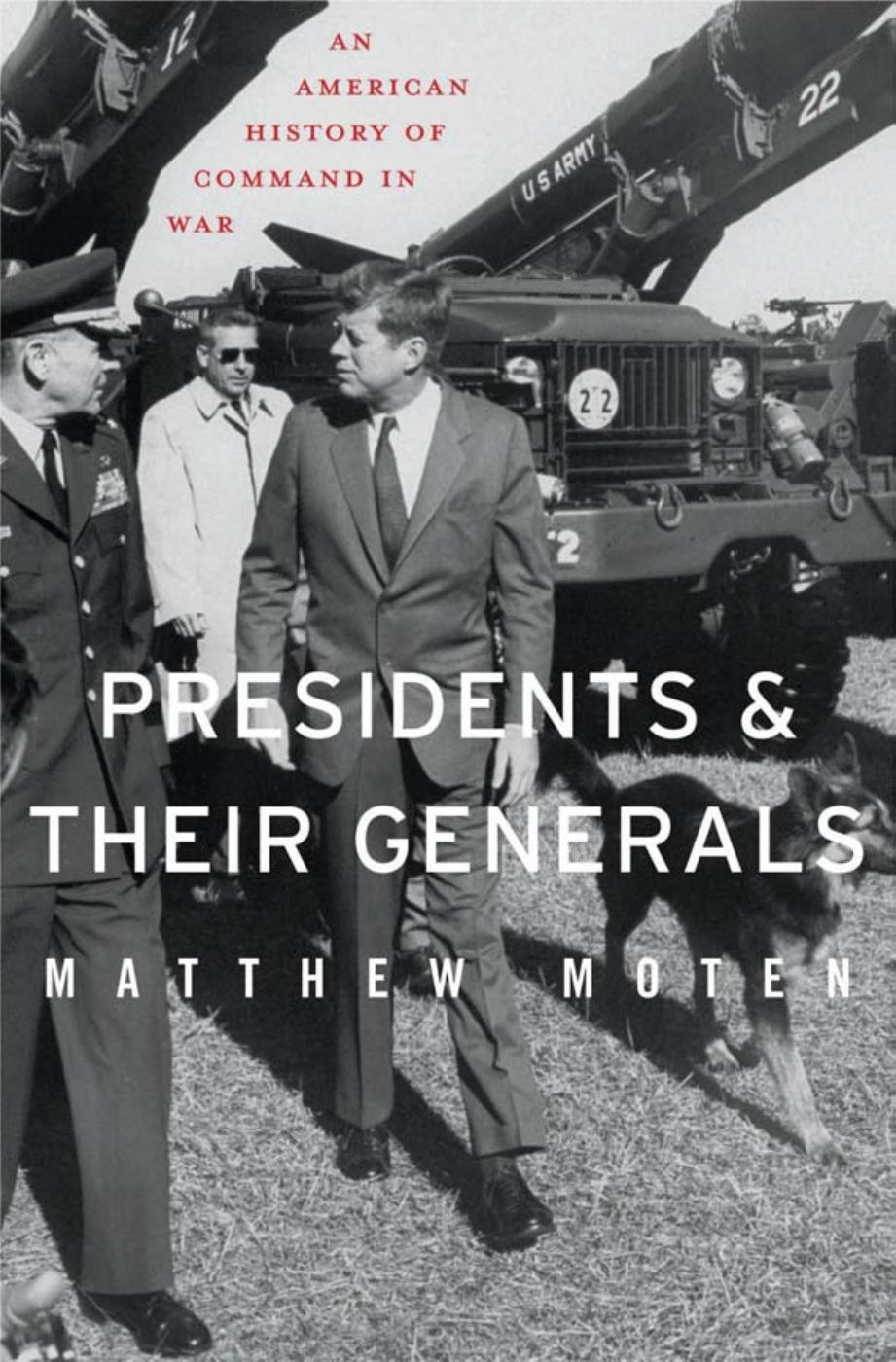Presidents and Their Generals: An American History of Command in War by Matthew Moten

Author:Matthew Moten [Moten, Matthew]
Language: eng
Format: epub, pdf
ISBN: 9780674058149
Publisher: Harvard University Press
Published: 2014-11-05T00:00:00+00:00
Harry Truman viewed himself as a man who differentiated clearly between black and white, with little interest in shades of gray. Yet, like all people, he overlooked his own compromises. Truman professed to hate West Pointers. Denied a Military Academy appointment as a youth, he affected a lifelong disdain for the college and its graduates, a sentiment that he expanded to include all regular officers. Yet Truman admired citizen-soldiers like the Missouri national guardsmen he led as a battery commander in the First World War. He told himself that there was a world of difference between these two martial archetypes, but in fact Truman developed great respect for a number of Military Academy men, such as fellow Missourian Omar N. Bradley, and regular officers, most notably his secretary of state and secretary of defense, George C. Marshall. Indeed, he came almost to revere those men, uncritically overlooking their flaws. Truman fancied himself a man of plain thinking and no contradictions, but events proved otherwise.8
Truman observed the supposedly inviolable rule that “politicians have no business interfering in military operations.” A student of history, especially the Civil War, Truman had drawn cautionary lessons from the Joint Committee on the Conduct of the War. When, during World War II, then senator from Missouri Truman came to chair a military oversight committee, he vowed that his board would not repeat the meddling mistakes of its predecessor. Likewise, he had studied the relations between Confederate president Jefferson Davis and his chief lieutenant, Robert E. Lee. Truman concluded that theirs was the ideal political-military partnership, wherein Davis made policy and Lee carried it out through strategy. A theoretical “bright line” delineated the gap between those responsibilities. His assessment overlooked Davis’s niggling supervision of other military commanders as well as Lee’s deft forays into policy. Nonetheless, in Truman’s mind, the separation of policy and politicians from strategy and generals was absolute: “The commanders in the field have absolute control of the tactics and the strategy, and they always have.” FDR would certainly have begged to differ.9
Truman was a haberdasher by trade, a small businessman, and local politician. He might have remained a county judge in Independence, Missouri, but for the support of Thomas Pendergast, Democratic boss of Kansas City. Pendergast needed a U.S. Senate candidate in 1934, and Harry Truman fit the bill. Truman won easily, but his association with the Kansas City machine cast a shadow over his career. The new senator responded with honesty, patience, and hard work, making few headlines until he became chairman of the military oversight committee during the war. Rather than grilling generals and questioning strategy as the Joint Committee on the Conduct of the War had done, Truman traveled the country investigating military contracts at army posts and naval bases. He ferreted out corruption and saved taxpayers $15 billion with diligent oversight. In the public consciousness, Truman transformed himself from protégé of a ward boss to paragon of clean government. In 1944 when FDR began casting about for a replacement for his vice president, Henry A.
Download
Presidents and Their Generals: An American History of Command in War by Matthew Moten.pdf
This site does not store any files on its server. We only index and link to content provided by other sites. Please contact the content providers to delete copyright contents if any and email us, we'll remove relevant links or contents immediately.
| Africa | Americas |
| Arctic & Antarctica | Asia |
| Australia & Oceania | Europe |
| Middle East | Russia |
| United States | World |
| Ancient Civilizations | Military |
| Historical Study & Educational Resources |
Counterinsurgency Warfare: Theory and Practice (Psi Classics in the Counterinsurgency Era) by David Galula(1111)
The Art of War by Sun Tzu(1026)
Bowden, Mark by Black Hawk Down(692)
Black Hawk Down: A Story of Modern War by Mark Bowden(660)
THE ART OF WAR (Giles Translation) by Sun Tzu(650)
The Book Of Five Rings by Miyamoto Musashi(629)
Rick Steves London 2015 by Rick Steves & Gene Openshaw(569)
Bravo Two Zero by Andy Mcnab(511)
Rifle Marksmanship by Department Army(500)
The Direction of War by Hew Strachan(427)
Last Stand! by Bryan Perrett(396)
Mao Tse-Tung On Guerrilla Warfare by Mao Tse-tung(395)
The Book of Six Rings by Jock Brocas(393)
Seizing Power by Naunihal Singh(387)
The Book of War by Sun Tzu(372)
Human Factors Issues in Combat Identification by Dee H. Andrews & Robert P. Herz & Mark B. Wolf(371)
Arming Without Aiming: India's Military Modernization by Stephen P. Cohen & Sunil Dasgupta(371)
Deception in War by Latimer Jon(346)
Military Strategy by Antulio J. Echevarria II(335)
